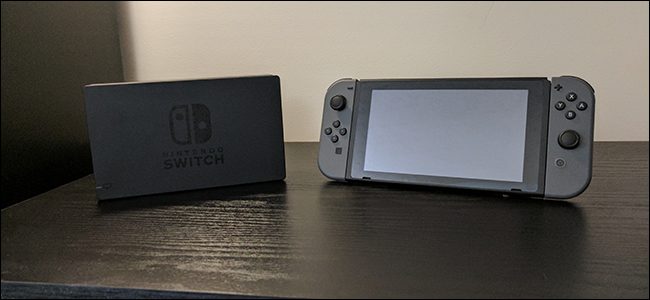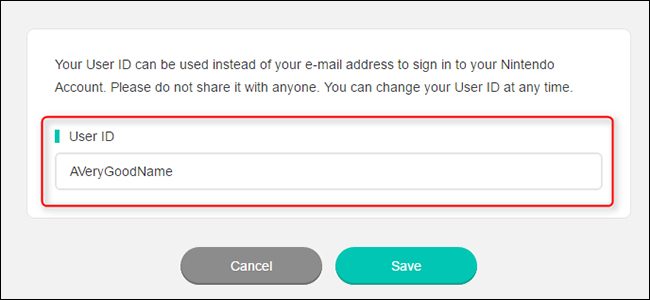How to Get All Your Confusing Nintendo Accounts Ready for the Switch

Nintendo has a dizzying array of different online accounts connected to various services. If you’re setting up a new Switch, here’s what you need to know and how to claim your unique Nintendo Account ID.
The Different Kinds of Nintendo Accounts, and What They Do
It seems like Nintendo creates a new online account system every few years. If you can’t keep them straight, don’t worry. You’re in good company. Here are the different accounts and IDs, plus what they’re used for:
- Nintendo Account: This is the new account system introduced in March of 2016. You can use this to log into non-Nintendo devices—for example, signing into Super Mario Run on your smartphone—or the My Nintendo rewards program. This will also be the primary account used on the Nintendo Switch to play online and buy digital game downloads. Your Nintendo Account also has a nickname (mine’s “Eric”, for example) that is used locally to differentiate you from other people that use that Switch.
- Nintendo Account User ID: You can think of this like your gamertag on services like Steam, Xbox Live, or PlayStation Network. This is tied to your Nintendo Account, but curiously you don’t have to create an ID when you sign up for a Nintendo Account. Since the company’s been cagey about the Switch’s online capabilities, it’s not clear what this will be used for just yet. But unlike your Nintendo Account’s nickname, your User ID must be unique, so you should claim it while you can, before someone else gets the one you want. Instructions to do so can be found below.
- Nintendo Network ID: This is the account system used on the Wii U and 3DS platforms. It lets you play online and buy games from the eShop. If you already have a Nintendo Network ID, you can link it to your Nintendo Account.
- My Nintendo: This is a rewards program that you can use to earn points you can redeem for rewards, like discounts on downloadable games. It’s optional, but it’s tied to your Nintendo Account. That means you won’t need yet another login for your console like you did for the old Club Nintendo rewards program.
- Friend Codes: These are terrible. Prior to Nintendo Network ID, the only way to connect with someone was to share a random twelve-digit code that was unique to you. A day-one update brings this feature to the Switch. Mercifully, they’re not the only way to add other players on your new console. However, there may be that rare situation where you still need them.
Yes, this is all very confusing. Nintendo has held a lot of information about their online features back prior to the Switch’s release, which makes it all the more frustrating. The company’s making a big push to overhaul its online services with this console—including a new, paid online gaming service comparable to Xbox Live or PSN coming later this year—so hopefully it won’t always be this confusing. For now, though, there are a few things you should do to get your account ready for your Switch.
How to Claim Your Nintendo Account User ID (Before Someone Else Does)
Even if you’ve been using your Nintendo Account for a while, you might not have created a unique Nintendo Account User ID. Before you set up your Switch, you should claim the one you want, before someone else does. To get started, head to your account settings page here.
Scroll down to User ID and click Edit.

On the next page, re-enter your password and click OK.

Next, create your unique User ID and click Save. Unlike your account’s nickname, this must be unique. You can change it later if you want, but you can only pick a new name that isn’t already in use.

Your new User ID will now be tied to your Nintendo Account. You can use it to sign into your account instead of your email address.
How to Link Your Nintendo Account to Your Nintendo Network ID
If you have an old Nintendo Network ID, you might have a bunch of old games and purchases tied to it. Fortunately, you can bring those over to your Nintendo Account—though it’s unclear just yet if that means you’ll be able to download those purchases to your Switch. Regardless, it’s a good idea to connect your two accounts. If you never signed up for a Nintendo Network ID, you can skip to the next section.
To merge your accounts, head to your Nintendo Account settings page here. Scroll down to “Linked accounts” and click Edit.

Click the checkbox next to Nintendo Network ID.

On the next page, log into your Nintendo Network ID, then click Sign In.

Your two accounts are now linked. You can now share funds between the two accounts if you have any, or see your purchase history from your Nintendo Account.
How to Add Your Nintendo Account to Your New Nintendo Switch
Once you’ve done both of the above steps, you’re ready to add your account to Switch. When you first set up your console, you should have been instructed to create a User for each person who would be playing on it. To pair your Nintendo Account with your User profile, open the System Settings app from the home screen.

Next, scroll to Users on the left side of the screen and press A. Then choose your user profile and press A again.

On your User profile page, choose Link Nintendo Account.

Next, you’ll be asked to either sign into an existing account or create a new one. If you followed the steps in the previous sections, you should already have an account, so choose “Sign In and Link.”

You’ll then be asked to sign into your Nintendo Account using your email address or Nintendo Account User ID. Alternatively, you can sign in using your credentials for social accounts including Google, Facebook, Twitter, or your old Nintendo Network ID. Choose the one you want to use to sign in.

Enter your login information and select Sign In.

At last, you’ll see a box confirming that your account has been successfully logged in.

If you use Nintendo’s eShop, all your purchases will now be tied to this account. Presumably, you’ll also be able to download games you’ve already purchased, although at launch there aren’t many that are compatible with the Switch.
No comments:
Post a Comment